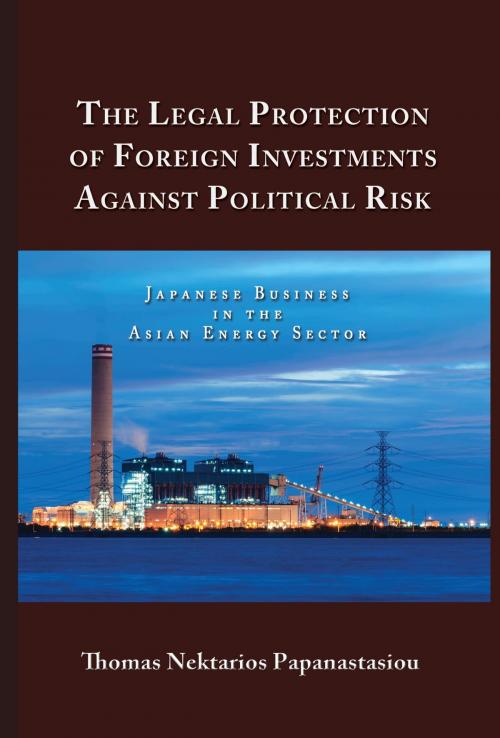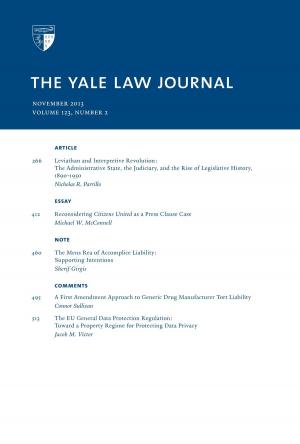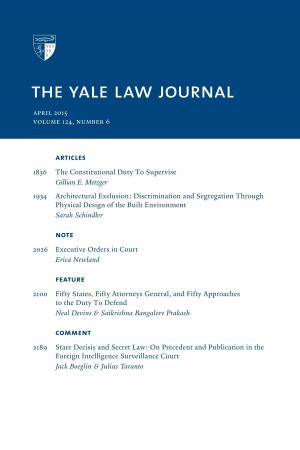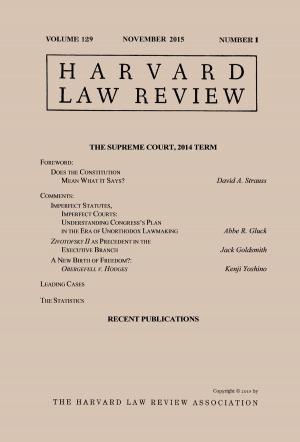The Legal Protection of Foreign Investments Against Political Risk: Japanese Business in the Asian Energy Sector
Nonfiction, Reference & Language, Law, International, Business & Finance, Industries & Professions, Industries| Author: | Thomas Nektarios Papanastasiou | ISBN: | 9781610273121 |
| Publisher: | Quid Pro, LLC | Publication: | August 18, 2015 |
| Imprint: | Smashwords Edition | Language: | English |
| Author: | Thomas Nektarios Papanastasiou |
| ISBN: | 9781610273121 |
| Publisher: | Quid Pro, LLC |
| Publication: | August 18, 2015 |
| Imprint: | Smashwords Edition |
| Language: | English |
'The Legal Protection of Foreign Investments Against Political Risk' examines how political risks associated with foreign direct investment in the energy sector are managed or mitigated, and suggests new ways to deal with the possibility of such risk. It applies its analysis—using case studies and international law, and examining actual contracts—to the specific context of foreign investment in five Asian countries’ power infrastructure projects.
“Legal protection of foreign investments against political risk has been a problem for a long time. Professor Papanastasiou’s book brilliantly balances the legitimate regulatory power of host states with legitimate business interests of foreign investors by presenting a neatly designed multi-layered legal framework for political risk management. This is an important contribution to both the study of international investment law and the practice of foreign investment business transactions.”
— Junji Nakagawa, Professor of International Economic Law,
Institute of Social Science, University of Tokyo
Author, International Harmonization of Economic Regulation (Oxford Univ. Press, 2011)
“This book is an impressive and important entry into the field of international investment law scholarship. While maintaining a focus on the important Japanese and Asian regions, it also provides a general and up-to-date coverage of relevant international investment law and political risk considerations faced by multinational corporations. It is impressively concise, yet thorough; it is practical, yet takes into account relevant and recent legal scholarship; it is well-written and organized. The ultimate goal is to help foreign investors and their advisors understand the current international investment law framework and climate to enable them to devise strategies to help their clients reduce political risk, and to protect their clients’ property rights and investments. This work should be of interest to in-house counsel and international law practitioners, as well as to law students and scholars for its coverage of current international investment law standards, scholarship, and practices.”
— N. Stephan Kinsella, Attorney, Houston, Texas
Co-author, International Investment, Political Risk, and Dispute Resolution (OUP, 2005)
“This study contributes insightfully to the literature on international economics and, in particular, on the laws protecting foreign investment. The book is unique in two ways. First, it analyzes and measures the impact of such multi-tier legal frameworks as FTAs, investment contracts, FDI regulations and insurance by combining legal interpretative tools and scoring techniques. Second, it adds a new narrative on how Japanese business can use law to secure investments from political risks in the energy sector of foreign countries.”
— Shujiro Urata, Professor of International Economics,
Graduate School of Asian Pacific Studies, Waseda University
Co-editor, Economic Consequences of Globalization: Evidence from East Asia (Routledge, 2012)
'The Legal Protection of Foreign Investments Against Political Risk' examines how political risks associated with foreign direct investment in the energy sector are managed or mitigated, and suggests new ways to deal with the possibility of such risk. It applies its analysis—using case studies and international law, and examining actual contracts—to the specific context of foreign investment in five Asian countries’ power infrastructure projects.
“Legal protection of foreign investments against political risk has been a problem for a long time. Professor Papanastasiou’s book brilliantly balances the legitimate regulatory power of host states with legitimate business interests of foreign investors by presenting a neatly designed multi-layered legal framework for political risk management. This is an important contribution to both the study of international investment law and the practice of foreign investment business transactions.”
— Junji Nakagawa, Professor of International Economic Law,
Institute of Social Science, University of Tokyo
Author, International Harmonization of Economic Regulation (Oxford Univ. Press, 2011)
“This book is an impressive and important entry into the field of international investment law scholarship. While maintaining a focus on the important Japanese and Asian regions, it also provides a general and up-to-date coverage of relevant international investment law and political risk considerations faced by multinational corporations. It is impressively concise, yet thorough; it is practical, yet takes into account relevant and recent legal scholarship; it is well-written and organized. The ultimate goal is to help foreign investors and their advisors understand the current international investment law framework and climate to enable them to devise strategies to help their clients reduce political risk, and to protect their clients’ property rights and investments. This work should be of interest to in-house counsel and international law practitioners, as well as to law students and scholars for its coverage of current international investment law standards, scholarship, and practices.”
— N. Stephan Kinsella, Attorney, Houston, Texas
Co-author, International Investment, Political Risk, and Dispute Resolution (OUP, 2005)
“This study contributes insightfully to the literature on international economics and, in particular, on the laws protecting foreign investment. The book is unique in two ways. First, it analyzes and measures the impact of such multi-tier legal frameworks as FTAs, investment contracts, FDI regulations and insurance by combining legal interpretative tools and scoring techniques. Second, it adds a new narrative on how Japanese business can use law to secure investments from political risks in the energy sector of foreign countries.”
— Shujiro Urata, Professor of International Economics,
Graduate School of Asian Pacific Studies, Waseda University
Co-editor, Economic Consequences of Globalization: Evidence from East Asia (Routledge, 2012)















